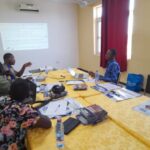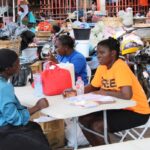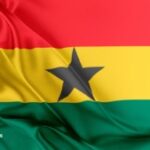
Justice delivery in the north has been hindered by the lack of adequate lawyers in the Savannah, Northeast, and northern regions for legal aid services for the poor and vulnerable who are unable to hire the services of a private lawyer.
This was revealed by the programmes officer at the Legal Resources Centre, Enoch Jengre, during an engagement with CSOs in the northern region on the Open Government Partnership.
He said the current legal system may only favor the rich since they can afford private lawyers to represent them at the law court.
He revealed that there are instances where an individual may have his rights violated but is unable to seek justice because of their inability to get legal representation.
The LRC’s programme officer said Ghana currently has a little over 7,000 lawyers, and only 0.7 percent are in the northern region.
On the open government partnership, Enoch Jengre explained that the government made certain commitments, say, in the area of peace and security, and about the priorities of the government, where per the demands of the OGP, they as a centre and other CSOs need to put them in the form of commitments and milestones and then hold the government accountable for that while working with the government to make sure that those priorities that it has indicated are consciously implemented.
He said this would benefit the people of Ghana.
“This is the 5th time that Ghana has submitted its national action plan on OGP, but there has not been any commitment in the area of justice, and you would actually bear in mind that issues of justice continue to be key under the banner of the government and every state institution. So we have to make an advocacy before the steering committee of OGP that there is a need for Ghana to also have a commitment in the area of justice.” He explained
He further mentioned that there’s a need to decentralise OGP in the region, therefore the need to come and meet with CSOs working in the area of justice to take them through the OGP concept and how to put together a framework to develop a commitment to justice.
“Here, we put together a commitment on the justice framework, and one is about the community service bill and the operationalization of paralegals in Ghana.
“The community service bill is a bill that has been with the government and that has undergone various consultative meetings with both state and non-state actors. We know the importance of putting together and having a community service law in Ghana, just like we learned from the participatory workshop. In terms of OGP, it is not about going into the merits of the bill but about how we will craft the commitment in an OGP language and in terms of its implementation. Aside from this commitment, which is the passage into law of the community service bill, the other commitment that stakeholders have graciously accepted is about the operationalization of paralegals in Ghana. You’ll bear with me that, as it stands, Ghana doesn’t have a framework to regulate paralegals who are both professional and community-based paralegals. So we are looking at crafting a second commitment to justice that will seek to ensure that community-based paralegals are not left out.”
Elaborated
However, he underscored the importance of paralegals in Ghana, saying they work to complement the efforts of lawyers.
About OGP
In 2011, government leaders and civil society advocates came together to create a unique partnership—one that combines these powerful forces to promote transparent, participatory, inclusive and accountable governance.
The Open Government Partnership (OGP) includes 75 countries and 104 local governments – representing more than two billion people – and thousands of civil society organizations.
Source: https://rainbowradioonline.com/2024/04/22/120553/




